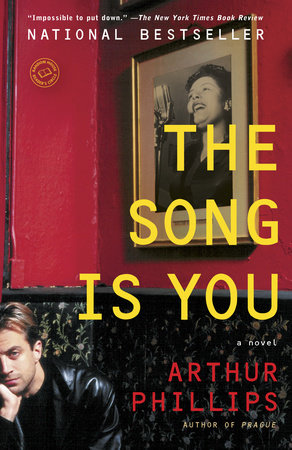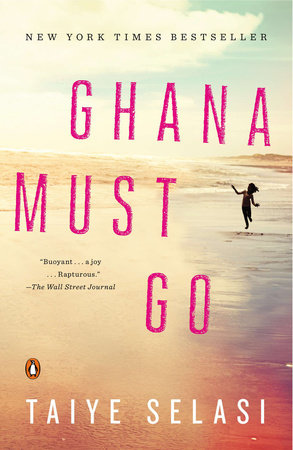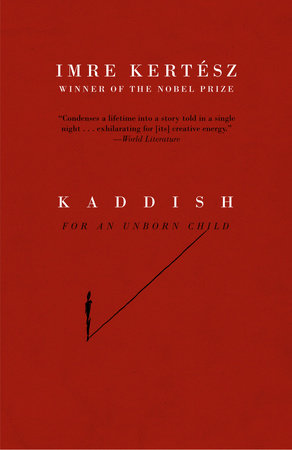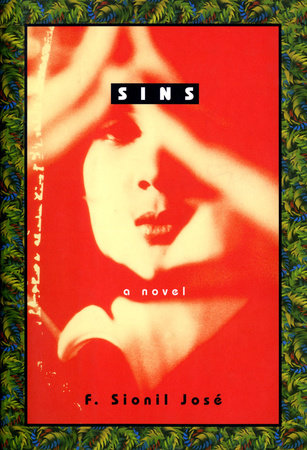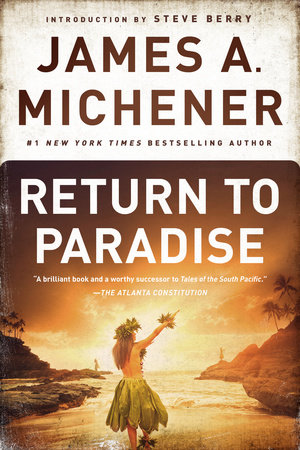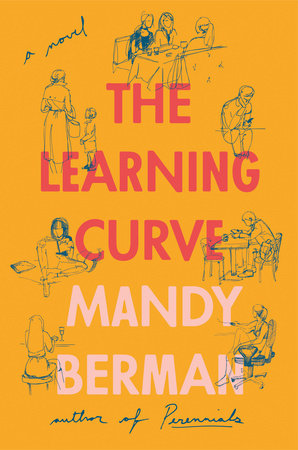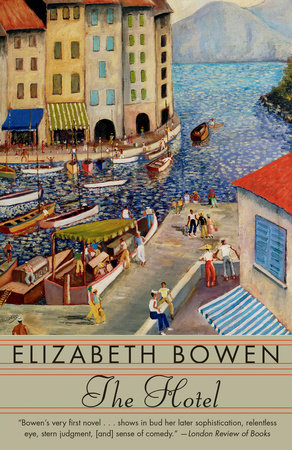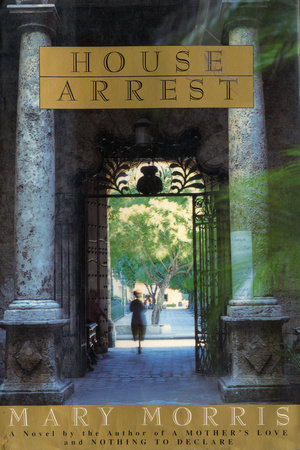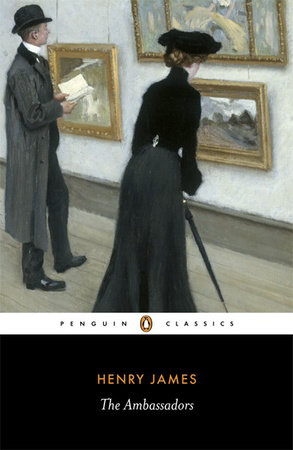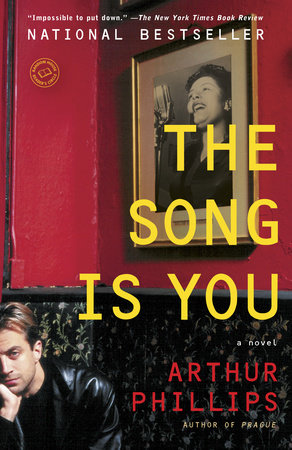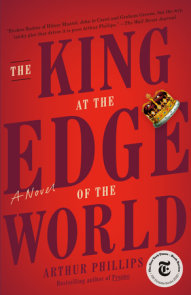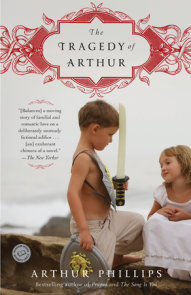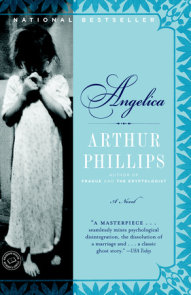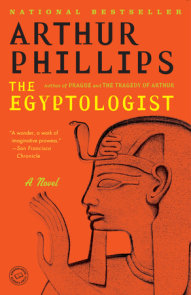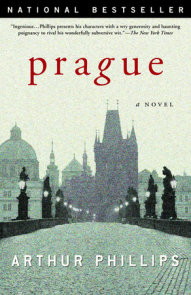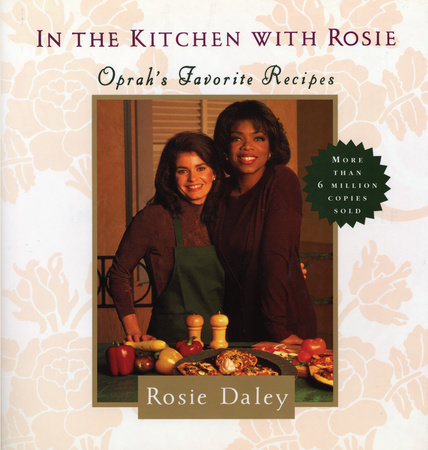Author Q&A
A Conversation with Arthur Phillips
Arthur Phillips is interviewed by Tim Riley, the author of several books on rock history, including Tell Me Why: A Beatles Commentary and Fever: How Rock ’n’ Roll Transformed Gender in America. Riley edits the Riley Rock Index.
Tim Riley: The Song Is You tells the story of two music-obsessed people at different ends of the music industry, and how music steers and inflects their obsession with each other. It starts with a live Billie Holiday recording of “I Cover the Waterfront,” and we learn that Julian’s father is the fan on the record yelling out the song request. You’re very attentive to how such intimate affections burst into public. Have you ever had a similar experience—where a pop record takes on intense personal meaning in your private life?
Arthur Phillips: All the time. I wouldn’t have written this story otherwise. I do have that much in common with Julian Donahue. I haven’t really taken my affections public, however. I have befriended a musician whom I greatly admired when I was a kid, and, many years ago, I did ask the singer of the Beautiful South to dance with me at First Avenue in Minneapolis, at the end of their concert. She looked at me as if I might be dangerous and ran to her tour bus. But otherwise, it’s just me and my iPod having intense personal experiences all the time.
TR: Randomness plays a key role in how your plot unfolds—the way an encore of “Monkey Man” by the Rolling Stones reveals something telling about Cait to Julian, fills in some blanks. Did you have playlists for each character, or did songs jump out at you as you developed their differing traits? How many of the novel’s music choices were random?
AP: Well, it’s not revealing any great secret to say that everyone’s music in the book is mine. It’s all from my collection and I love it all, and that’s why I used it. I did listen to music while writing this book much more than I ever have in the past, and I would often stop and skim through songs trying to find just the right one for a character’s developing taste. I remember walking down the street one day, with the old ’Pod on shuffle, and “Monkey Man” came on. “Oh, yes, definitely,” I remember thinking. “She’d definitely cover this.”
TR: That’s just the coolest, because if you had made her a singersongwriter in the mold of someone like Jewel, or Sarah McLaughlin, I would have never fallen in love with her. That track just pulled a trigger for me and I immediately started rooting for her. Have you heard any feedback from readers saying that you’ve pointed them in interesting directions with their listening habits?
AP: I did put a playlist up on iTunes, which at least a few people looked at. I am—like every music fan—both protective of my secret passions and a proselytizer for whoever I think is great. I do hope that the book gets people listening to my favorite bands. And giving me credit for it.
TR: Cait is at once Julian’s “ideal music babe” and a flesh-and-blood musician with foibles, petty indiscretions. Like many singers, she treats her guitarist like dirt. How difficult was it to strike this balance between Julian’s “Cait” and the real Cait working the industry ropes?
AP: I’ve been on both sides of that, I suppose. I’ve been a musician; I’ve felt what it’s like to perform and to deal with music industry types. I’ve also had crushes where my imagination of the crushed party leaps far ahead of any actual facts. So writing from both of those perspectives didn’t strain me too much.
TR: Did you ever fall so in love with a song that it prompted you to dream up a character? Or an idealized romantic conquest?
AP: More like the song attached to whoever was my current idealized romantic conquest. There’s a girl in the dorm, I’m thinking about her, I’m walking around, a song comes on, it seems to capture something, and suddenly it’s describing her, very specifically, or her thoughts. . . . I was dreaming up a fictional person, of course, but one who shared certain superficial traits with some poor girl from Iowa in the dorm.
TR: Do you think a fundamental shift has happened with the iPod? Are people experiencing music differently from before? Has this affected the music itself?
AP: There have been two fundamental shifts that I can see, from the point of view of the average music lover. The first was the Walkman: you took your music with you, either an album or a mix, and it be- came part of your day outside of your private spaces. The second was the mp3 player, which let you take more than one album with you. Those two things definitely mean you experience music differently. It’s a part of your outdoor life, it’s a part of your interior monologue when out in the world. These are psychic events that our ancestors (back in the seventies) really didn’t experience. I am not making music now, so I can only guess what this means to musicians and bands and composers. My guess is that for pop musicians it makes the single far more important again (as it was in the fifties and before) and the album less important.
TR: There’s an essay there—about intimacy with music in public spaces and how it accommodates some styles more than others and could be said to influence the kinds of music people create and consume. . . . If you ever write that essay, I’d love to read it. Of course, this all happens during a giant meltdown in both the music industry and the explosion of the Web, so much so that it’s hard to separate out the tools and platforms from music’s new landscape. I suppose one of my thoughts is: How come more fiction writers haven’t embraced some of this material? It’s happening so radically, on such a mass level, it’s curious that I can think of only a handful of writers who are dealing with it, either fictive or nonfictive. Thoughts? Have you read the Big Industry Piece yet that I’m missing?
AP: You’ve stumped me on this one, but I suspect you should be writing that BIP.
TR: In your book, the iPod and its shared music operate as a kind of character. Can you think of other novels you admire that make creative use of music and its meanings? Are you a fan of Frank Conroy’s Body and Soul?
AP: I haven’t read that one, but I did spend a lot of time going over old favorite books when I was writing this. Proust has a lot about what it feels like to hear music for the first time, and what it felt like when you fell in love with a piece of music before mechanical reproduction, when you couldn’t hear the thing you wanted to hear, and when the world was mostly without music. These are psychic experiences most of us will never have. Similarly, I was very interested to reread some Milan Kundera, where he uses bits of scores in his novels, where he explains the meanings of particular phrases, compositions, and composers to the characters. He has also written about how he tries to structure his novels to mirror certain classical forms—sonatas, for example— and how he tries to achieve the same effects of musical tempo through his literary pacing.
TR: Kundera’s a really good example, except his fondness for late Beethoven gets obscured, in my opinion, by his utter contempt for pop culture. I never understood why one had to choose.
AP: Yes! Yes! Yes! It is one of my great complaints with that great writer and one of the points on which I have to go back and question all my assumptions about his wisdom. Why the big insistence on saying music died with Duke Ellington? It’s so intensely stubborn and wrongheaded. And yet it seems tied to a previous step in the evolution of music technology. Music on speakers that you cannot avoid— in restaurants, for example—so offends Kundera (understandably) that he associates, I think, that blow against civilization with the music that is being piped through those speakers. I think, really, he dates the death of music from the onset of PA systems and Muzak (which carries a vaguely Orwellian or Stalinist tinge for him, I suspect). It is, as a side note, worth pointing out that pop music made in the 1960s had a massive importance to the men and women who dissented against Czech communism, but for Kundera (who also dissented), it’s all just noise, anti-art.
TR: You write persuasively about ensemble politics. Most people never seem to realize how hard it is to keep a band together, even when it finds success. How much great music relies on this mixture of sexual tension, power intrigue, and competing individual interests?
AP: Young people working together, egos at risk, trying to create something new, trying to honor their heroes and still break free of them, sharing solo space, trying to get audience respect and admiration and possibly love: this is a very exciting atmosphere, but it is also obviously very unstable. In the rare occasions when it somehow works and keeps working (the Rolling Stones again), it really has defied all odds of collapse. Generally, a truly collaborative musical partnership is going to be much more unstable than an artistic dictatorship, where all creativity comes from one leader. Great music can come from either, but it’s going to come longer from the dictator, in almost every case.
TR: Or simply wobble along unsteadily. Although I’m curious how many long-term rock partnerships I can rattle off: Steely Dan, Jagger- Richards of course, but that dwindles off considerably. What about the idea of an artist’s relationship to his muse: Dylan, say, who holds a very fascinating conversation with himself for a long time, and then collapses into weary self-pity. Springsteen would be the benevolentdictator example.
AP: And look what happened with Springsteen and his backup singer. I am, obviously, very interested in the muses, but I don’t know many of them. And I am a little worried about seeing a picture of them, especially the muse of a song that I love, and thinking, “Oh. Well. Not my type, really.”
TR: You write about how Cait receives an anonymous critique from Julian that helps her discover her voice and develop her persona. Do you think many musicians have that much respect for critical, or even insider, advice?
AP: That is the most common sticking point people have with this novel, I think. It is a unique case: Cait is someone of a specific background, makeup, and susceptibility to advice at the moment when it arrives, and it arrives facelessly. I think the degree to which any artist is willing to take advice will vary from person to person and from year to year within an individual life. That said, it is not uncommon for young artists to have an older mentor they trust (until they feel they have to get rid of them to grow). How about Raymond Carver and Gordon Lish as the model here? A unique case, but one in which the younger party allowed the older party enormous leeway.
TR: I think it works for reasons you detail, but also because it’s very good advice from an experienced pro, and it hooks up with Cait’s ambition to create a persona as well as write material for that specific persona. A lot of musicians get lost in the details, I think (as we critics do), and fetishize over the trees at the expense of the forest. I know when I read that advice, I thought “Spot on, would that somebody had encouraged me like that.” But of course, it makes great material because it’s complicated: he wants to seduce her as well as see her succeed.
AP: May I also say: Mariah Carey and her older advisers, if I have my story straight.
TR: Cast the movie.
AP: I’ll leave that to the pros, thank you very much. But it makes a good book club topic.
